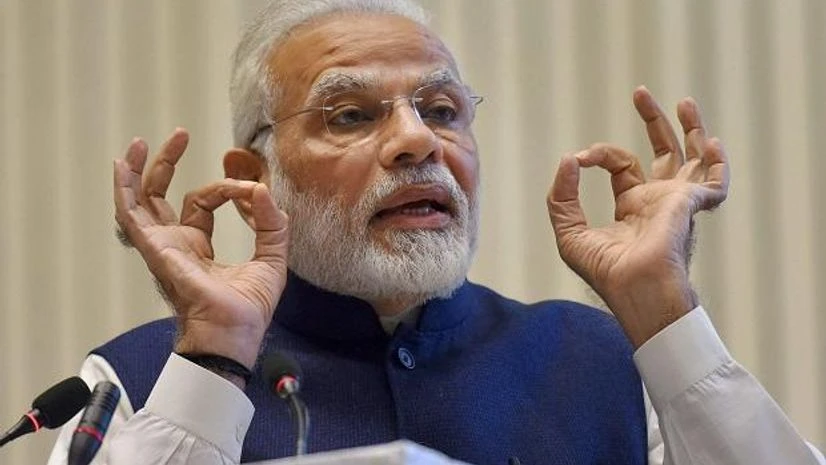Tearing into the UPA regime, Prime Minister Narendra Modi today said he was ready to pay a "big political price" for bringing about systemic changes in the country and asserted no one would be able to stop his government from taking "irreversible" decisions.
The prime minister said India was counted among the "fragile five" nations globally and the country's economy, banking system and governance structure were in a poor shape when the NDA came to power ousting the UPA in 2014.
But his government managed to make a turnaround, drawing world-wide recognition for having done so, he said.
At the 15th Hindustan Times Leadership Summit, Modi listed the achievements of his government in a range of sectors and highlighted steps taken to contain black money and corruption, and on improving the banking system, governance and the overall lives of the common people.
"I am aware of the big political price I will have to pay for the steps I have taken, the path I have chosen and the destination I want to take the country to. But I am ready for it," Modi said, while talking about the "legacy" left behind for the NDA by the UPA government.
His remarks come in the midst of a fierce electoral battle between the Congress and the ruling BJP in the politically crucial state of Gujarat.
More From This Section
Referring to demonetisation, he said it had brought about a "behavioural change" in the country. Corrupt people, for the first time after Independence, were scared of making illicit money.
"The day the country will have a technical and digital address for all monetary transactions, organised corruption would be checked to a great extent," he said.
Black money coming into the banking system had also brought along with it massive data, a "treasure trove" that would enable the government take action against wrong-doers, he said, adding that ill-gotten wealth earlier funding a parallel economy was now a part of the formal economy.
"This government cannot be stopped by anyone from taking steps which will bring permanent changes in the system and ensure the interest of the nation. I think those who feel this country cannot be changed using a magic wand are grappling with frustration and disappointment," Modi said.
On GST, he said it had ushered in a new chapter of transparency in the country.
Talking about the "policy paralysis" of the UPA, he also took an apparent dig at the media.
"When we came to power what did we get as legacy? The condition of the economy, governance, fiscal order and banking system were in a bad shape. You had to talk about these things in discounted words. When you had to write headlines, then it was said 'policy paralysis'," he said.
Modi said "no harsher words" were used to describe the situation then.
During the rule of the previous government, he said, "Bhrashtachar hi shishtachar thha (corruption was the norm)." He also said his government was committed to a development-centric eco system which would be citizen centric and free of corruption.
Appreciating the role of Aadhaar in delivering services to the people and also checking pilferage, he said the system would also work as a tool to track down 'benami' properties.
Modi said for the past 70 years, people were fighting the system.
"The system was a hurdle in development, success. My effort and commitment is that the people's struggle with the system should end and ease of living should go up," he said.
Modi said the introduction of LED bulbs had helped save Rs 14,000 crore.
"You would not believe the figure...had the government introduced a scheme (with an outlay of) Rs 14,000 crore, I would have secured a vote bank of middle income group (people) for the next 50 years," he said.
The prime minister said no one would have stopped the previous government from implementing such schemes.
"But we won't be stopped," he asserted.
Modi said after demonetisation, 2.25 lakh companies were deregistered and directors of these companies who were mandated to check wrongdoings would no more be allowed to become directors of other companies.

)
